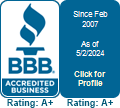Enforcement of Child Support Orders in Massachusetts
For information on
Massachusetts Child Support
Understanding Past Due Child Support in Massachusetts
Office of Child
Support Enforcement
In General:Under Massachusetts law, parents, whether they are married to each other or
not, are equally responsible for the support of their children. In Massachusetts,
this obligation is in effect until the children reach the age of 18. The
court may make appropriate orders of maintenance, support and education of any
child who has attained age 18, but not yet 21, and who is domiciled in the home
of a parent and principally dependent upon that parent for support. Same
may be true to a child who has attained the age of 21 but not yet 23, if the
child is principally dependent upon parents for enrollment in an educational
program, excluding educational costs beyond an undergraduate degree.
In Massachusetts, persons with outstanding child support obligations may be
subject to suspension of a professional and/or driver's license. In this
case, the license is not renewable until nonpayment status is removed by the
Department of Revenue. The names of these individuals also may be released to
the public as part of a program designed to alert them about this program.
The State of Massachusetts recently implemented an innovative program called the
Payment Intercept Program. Working with insurance industry representatives
and the Division of Insurance, it is designed to facilitate timely
processing of claims. Most importantly, it helps families provide for
their children. The Department of Revenue intercepts insurance claim payments
and uses them to pay past due child support obligations. This initiative
requires DOR and insurance companies to work together to identify pending claim
payments owed to parents who have child support debts, and to ensure that the
money goes to support their children..
What to do if your "ex" moves out of state?
You can
still enforce the child support judgment even if your "ex" moves out of state. Armed with your Massachusetts
support order, you can go to the other state's court to enforce the obligation.
This is done through a "reciprocal" or URESA petition in the Family Court in
the County where you live. While this is not an overly complicated
process, the Court staff can assist with this. Be patient as these actions
can take several months.
It's a major headache for everyone when a parent
refuses to pay his or her court ordered child support. This is a serious problem
of national dimensions. A recent study found that less than half the parents
awarded child support receive payment in full. The U.S. Census Bureau reported
that in 1999, non-custodial parents failed to pay $13 billion the owed in
child support payments. This failure is a major cause of poverty in children.
- Families
receiving public assistance - In
Massachusetts, each county has established a child support enforcement
agency that can assist you in collecting child support from your spouse.
This agency has responsibility for collecting child support for families
receiving cash assistance. However, you may also
apply for help even if you are not receiving cash
assistance. If you do receive cash
assistance in Massachusetts, you must assign child support rights to the
state. You must also help to locate the parent who is absent
from the home.
If you do not cooperate, you may be denied public assistance benefits.
- Families
not receiving public assistance - Services
are available to non-public assistance parents by the payment of a
non-refundable $25 fee. If you are representing yourself, and you are not on
cash assistance, applying to the child support
agency in your county for help is an excellent
method of obtaining legal representation at minimal cost.
A child support order is as enforceable as any
other court judgment or decree. A parent who is owed child support can use each
and every legal tool available to enforce the order, including wage
garnishments, wage assignments, contempt
of court decrees and the seizure of the non-payor's property by writ
of execution.
Use the
Government's Parent Locator Service
Nonpaying parents may hide
from the custodial parent in order to avoid their child support obligation. They
may even go so far as to move out of state to avoid their responsibilities.
In order to fix this problem, the federal
government has created the Parent Locator Service (The law also requires
the states to establish a Parent Locator Services). The law allows you to
use the resources of the federal government (including the Social Security
Administration and the Internal Revenue Service) to locate a nonpaying parent's
employer. Once found, the custodial parent or the state can enforce the child
support order and collect unpaid support recovering support from tax refunds.
The law also permits the IRS to pay past due child
support from tax refunds that the nonpaying parent is
due from the government.
For more information on the Parent Locator
Service, contact the local office of the Department
of Health and Human Services.
Back to Top
Obtain a Wage
Assignment
A wage assignment is a special procedure that allows
the court to order an employer to make direct payments to the custodial parent
from the wages of the supporting parent. You can apply to the court for a wage
assignment. Notice of this action must be served on the paying parent's
employer. The employer will deduct child support like
any other deduction from the paying parent's paycheck and send the money
directly to the custodial parent. If the nonpaying parent
holds a steady job, this is a very valuable tool.
Back to Top
|









